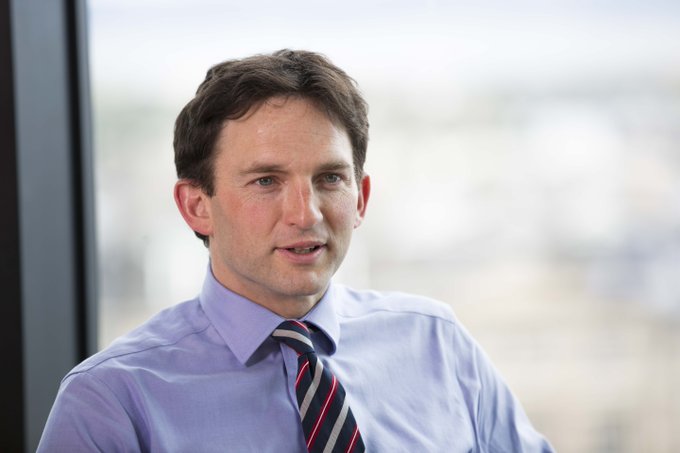Glasgow is due to host COP 26 in November 2021. With China recently committing to becoming ‘carbon neutral’ by 2060, and President-elect Joe Biden promising to re-join the Paris Agreement, there is growing optimism that COP 26 could be a turning point towards a more sustainable form of development.
Getting on to a trajectory that is ‘Paris aligned’ (i.e. limiting warming to well below 2 degrees) will require a daunting level of emissions cuts, but carbon reductions can be either ‘austerity led’, or ‘technology led’. The former conjures up images of post-war rationing and cold houses, whereas the latter comes with the enticing possibility of boosting enterprise, improving wellbeing and reducing environmental impact.
Scotland has made a great start since the pioneering 2009 Climate Change Act, and is committed to being ‘net-zero’ by 2045. Our last coal fired power station, Longannet in Fife, was closed in 2016, and over 90% of electricity demand can now be met from renewable sources, up from under 30% just a decade ago. However with the world gearing up for an unprecedented ‘low carbon transition’ we have an opportunity in Scotland to not just make our business sector more sustainable, but to make sustainability our business.
Scotland has an incredible ecological ‘comparative advantage’, with a limitless supply of renewable energy. Once we have met our own energy needs, we can transmit the surplus to England and beyond, or use it for more energy intensive industries. For example, Scotland could become a leading centre for ‘green’ cloud data hosting services. We owe a huge debt of gratitude to the oil and gas economy of the North East for the contribution that the region has made to our prosperity and wellbeing. More public funds should now be made available to help Aberdeen become a leading global centre for offshore renewable energy.
The greening of the energy sector is just the beginning. The transition will create new opportunities that should be at the centre of an economic development plan to become a leading ‘green’ knowledge economy. Aided by the great work of the Edinburgh-based Global Ethical Finance Initiative (GEFI), Scotland is already for example gaining an international reputation for sustainable and impact investing.
Leveraging our excellent universities we should step up our ambition in ‘sustainability-tech’ areas like video conferencing, sensors, automation, renewable heating technologies, batteries and electric planes. In the past we focussed on creating a ‘Silicon Glen’ in Scotland: we should now focus on building ‘Transition Glens’ – clusters of high-tech businesses exporting sustainability products and services to a transitioning world. With the UK Chancellor announcing a string of green finance initiatives, we should position Scotland as a great location for basing a whole host of sustainable finance related businesses.
We should aim to make Scottish food and drink the ‘gold standard’ for sustainability minded sustenance, and ensure all of our fisheries are certified by the ‘Marine Stewardship Council’, protecting both fish and fishing jobs for future generations. As the already battered air travel industry faces up to carbon, our tourism sector needs to refocus on the huge potential for growing UK visitors. Scotland can become a leader in low impact, ‘experience based’ tourism. A national off-road cycle path network should be a top priority, to meet the spiralling interest in two wheeled tourism. There is also an enormous opportunity for a number of ‘Greeneagles’: environmentally-friendly luxury resort hotels, emulating the golden age of hydro hotels.
We need a network of well connected and agile cities. Hydrogen powered trains are opening the way to greener rail travel, and we should now invest heavily in our track network. Rail travel between Perth and Edinburgh was about as quick in 1900 as it is today. Perth is showing great leadership with its target of becoming ‘the most sustainable small city in Europe’, but with the re-establishment of a direct line route to the Forth Rail Bridge via Kinross it could become the central hub for a vastly improved national rail service.
We also have an opportunity to become a leader in a better kind of capitalism. Scotland has a rich heritage in this area, with the New Lanark mill pioneering the way in the 19th Century towards more humane working conditions. Discerning students of Adam Smith will also know that he was as interested in morality and fairness as he was in inflation and free trade. We need to prioritise addressing Scotland’s stark inequalities and recreating thriving local communities. Bringing together previously disparate strands of thinking is key to the rapidly growing interest
in the ‘wellbeing economy’ where sustainability, health and happiness are as important as economic growth. A great example of a ‘wellbeing economy’ enterprise (and a Baillie Gifford community grant recipient) is ‘The Field’ in Dunkeld. This community-owned market garden provides great volunteering opportunities whilst
selling highly affordable organic fruit and vegetables back into the local economy. Although a rounding error in terms of GDP, it provides an enormous boost to local wellbeing. It is the kind of project that should be studied and replicated across Scotland as we aim to maximise wellbeing for the lowest ecological footprint.
In terms of the global fight against climate change, Scotland’s actions are fairly inconsequential, but by demonstrating a better way, enterprising Scots can once again influence and shape the wider world, as it strives for a more sustainable future.
Andrew Cave is Head of Governance & Sustainability at Baillie Gifford, and a Community Councillor in Highland Perthshire.
Andrew is a panellist at The Scotsman’s free webinar Leadership for sustainable future on Wednesday 25th November in association with international law firm CMS. Register here
Other webinar panelists include Zoë Arden (Fellow of the University of Cambridge Institute for Sustainability Leadership), Liz Lowe (Head Of Sustainability, Great Britain, The Coca-Cola Company), Allan Wernham (Managing Director, CMS Scotland) and James Withers (Chief Executive, Scotland Food and Drink).

